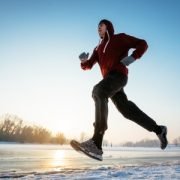Our thoughts on ‘iHunch’
There have been a couple of stories in the media over last few days about ‘iHunch’ or ‘text neck’, talking about how physiotherapists are seeing an increase in patients presenting with neck and upper-back issues related to the use of cellphones and other handheld devices. Little research has been done into the impact of handheld devices on the body. We believe that this is about more than just technology use. Poor posture, a sedentary lifestyle and limited physical activity/exercise are not good for our health and can contribute to neck and back issues. Whenever you are in a fixed position for too long, your muscles are under stress. It could be sitting at a desk for 6 hours straight, working on a production line or using your cellphone for extended periods.
It is not about ditching technology, but about making sure people and particularly children are educated about not putting the body into fixed postures for extended periods and encouraging them to break up their day with movement/physical activity.
Tips on how to keep moving during the day
- Take regular breaks about every half an hour. This could be as simple as going for a walk to get a glass of water or going to the printer.
- Vary your work/school day between sitting and standing. You don’t need a fancy standing desk to achieve this, it could be as simple as holding your next meeting around a leaner table with everyone standing.
- Check your posture regularly. When you need to be in a fixed position for extended periods of time, it is a good idea to be aware of your posture and reassess regularly.
- Movement for life. Exercise is so important to your health and we encourage everyone to be active on a regular basis. This could be going for a walk at lunchtime or a hike on the weekends. The important thing is to move on a regular basis.
Physiotherapists can help
If you are having issues with your neck or upper-back, a physiotherapist can help you not only relieve the symptoms, but also identify the cause, and provide advice on how to avoid these issues recurring.
If you spend extended periods using cellphones or other handheld devices, a physiotherapist can provide advice on how to avoid ‘iHunch’. Likewise, if you are unsure if you have good posture, a physiotherapist will be able to examine your posture and provide guidance tailored for you.



